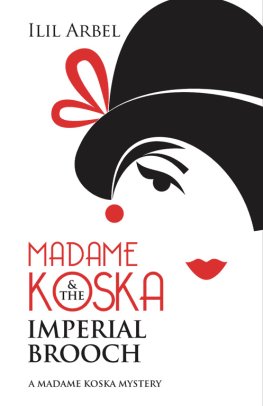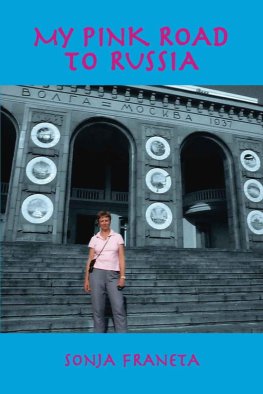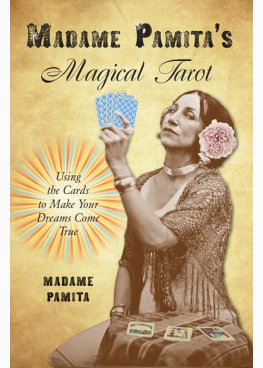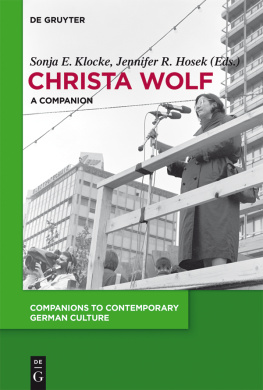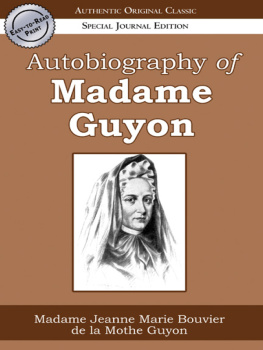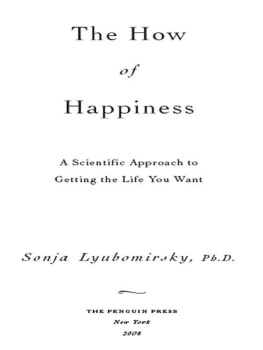THE LIFE OF MADAME NECKER: SIN, REDEMPTION AND THE PARISIAN SALON
THE BODY, GENDER AND CULTURE
Series Editor: Lynn Botelho
TITLES IN THIS SERIES
1 Courtly Indian Women in Late Imperial India
Angma Dey Jhala
2 Paracelsuss Theory of Embodiment: Conception and Gestation in Early Modern Europe
Amy Eisen Cislo
3 The Prostitutes Body: Rewriting Prostitution in Victorian Britain
Nina Attwood
4 Old Age and Disease in Early Modern Medicine
Daniel Schfer
FORTHCOMING TITLES
Stays and Body Image in London: The Staymaking Trade, 16801810
Lynn Sorge-English
Prostitution and Eighteenth-Century Culture: Sex, Commerce and Morality
Ann Lewis and Markman Ellis (eds)
THE LIFE OF MADAME NECKER: SIN, REDEMPTION AND THE PARISIAN SALON
BY
Sonja Boon
First published 2011 by Pickering & Chatto (Publishers) Limited
Published 2016 by Routledge
2 Park Square, Milton Park, Abingdon, Oxon OX14 4RN
711 Third Avenue, New York, NY 10017, USA
Routledge is an imprint of the Taylor & Francis Group, an informa business
Taylor & Francis 2011
Sonja Boon 2011
All rights reserved, including those of translation into foreign languages. No part of this book may be reprinted or reproduced or utilised in any form or by any electronic, mechanical, or other means, now known or hereafter invented, including photocopying and recording, or in any information storage or retrieval system, without permission in writing from the publishers.
Notice:
Product or corporate names may be trademarks or registered trademarks, and are used only for identification and explanation without intent to infringe.
BRITISH LIBRARY CATALOGUING IN PUBLICATION DATA
Boon, Sonja.
The life of Madame Necker: sin, redemption and the Parisian salon. (Body, gender and culture)
1. Necker, Suzanne Curchod, 17391794. 2. Necker, Suzanne Curchod, 17391794 Health. 3. Necker, Suzanne Curchod, 17391794 Family. 4. Salons France Paris History 18th century. 5. France Intellectual life 18th century.
I. Title II. Series
944.035092-dc22
ISBN-13: 978-1-84893-056-8 (hbk)
Typeset by Pickering & Chatto (Publishers) Limited
CONTENTS
To Bi, Stefan and Tbin, because you have all been part of this journey
This book could not have been written without the help, support, commitment and encouragement of many individuals on both sides of the Atlantic.
I thank Mary Lynn Stewart, who shared with me her fascination for the conceptual terrain of the body and was the best mentor and supervisor I could ever have asked for. To Kathy Mezei and Rosena Davison, thank you for your consistent encouragement, your probing questions and your care and support.
I benefited from the insights of numerous colleagues along the way, among them Lara Campbell, Catherine Dubeau, Stephen Duguid, Dena Goodman, Helen Hok-Sze Leung, Cindy Patton, Valerie Raoul, Betty Schellenberg and June Sturrock. I was also able to draw on the editorial advice and insights of numerous colleagues and friends, including Pamela Bry, Marica Cassis, Jean Guthrie, Heather Latimer, Helen Loshny, Byron Lee and Mary Shearman, and I am grateful for the assistance of graduate students, most notably Kira Petersson-Martin. I thank, too, Daire Carr and Julie Wilson at Pickering & Chatto for their insight, patience and efficiency.
The research for this book was conducted during the course of my doctoral study and was generously supported by the Social Sciences and Humanities Research Council of Canada and Simon Fraser University, and, later, during the editing and revising stages, by start-up funding from Memorial University of Newfoundland.
I also want to express my sincere appreciation to Mme Danielle Mincio and the staff of the rare books division of the Bibliothque cantonale et universitaire de Lausanne, Mme Barbara Roth and the staff of the Salle Snbier of the Bibliothque de Genve, and to the cheerful and very enthusiastic archivist of the Archives cantonales vaudoises (Lausanne) for their welcome and assistance during my 2007 trip to Switzerland. To the staff in Simon Fraser Universitys interlibrary loan division: Nancy Blake, Mirfat Habib, Scott Mackenzie, Sonny Wong and Vera Yuen, my grateful thanks for processing the most obscure requests for a variety of seventeenth- and eighteenth-century works, for locating copies from afar, for discovering treasure troves of previously unknown electronic editions, and for never-ending patience and goodwill.
appeared in Eighteenth-Century Fiction, 21:1 (2008), pp. 89107. I thank the anonymous reviewers of these articles for their valuable feedback in the earlier stages of this project.
Finally, I could not possibly have undertaken this work without the support of my family. Thank you to Bi, Stefan and Tbin for sharing laughter, sticky kisses, pinches, pokes and hugs, and for your unquestioning and completely unconditional love.
In elite society, it is theatre that presents itself first.
Today, theatre is everywhere and everyone believes himself to be on stage for effect; this is the source of the corruption of both moral taste and taste in the arts.
Madame Necker appears to have led a charmed existence. Her meteoric social ascension from impoverished orphan to esteemed socialite and philanthropist is the stuff of fairy tales. Suzanne had it all: beauty, brains, virtue and the coveted prize, a wealthy and politically powerful husband. It seemed almost too good to be true. Her precipitous flight from Paris during the early days of the French Revolution, followed by her tragic, premature death and spectacular burial, recall the final years of another otherwise charmed life that of Diana, Princess of Wales and would appear to be the only fitting end for a woman doomed to a life lived in the public gaze, a gaze she alternately courted and despised. Such indeed is the narrative outlined by her numerous biographers.
The bare bones of Madame Neckers life story, as we know them, are relatively straightforward. Suzanne Curchod was born in the Swiss village of Crassier, near the French border, on 2 June 1737. Hers was a family of modest means and moral rectitude: her father was a Calvinist minister and her mother a Huguenot exile who had fled France after the Revocation of the Edict of Nantes. From her father, Mademoiselle Curchod received a remarkable education, learning languages (including Latin and Greek), physics and mathematics, as well as the requisite feminine arts of music and painting. As one early twentieth-century commentator observed:
She had been educated like a man destined to the career of science and letters, and was well acquainted with ancient and modern languages; nor was her knowledge superficial. Not withstanding almost masculine gifts and a powerful but well-directed will, she was essentially feminine.
From her mother, meanwhile, she is said to have inherited her beauty. Once launched in Lausanne, she enjoyed success as a member of numerous social circles. Here, in 1757, she met Edward Gibbon, with whom she formed her first ultimately failed romantic attachment.
Tragedy struck soon thereafter. The deaths of her parents, in 1760 and 1763, forced her to rely wholly on her own resources. She took on paid work as a governess and later, at the encouragement of close friends, accepted a position as the personal companion of a young Parisian widow, Madame de Vermenoux. Germaine Necker, later Madame de Stal, flourished in her mothers salon and later developed into a woman of formidable intellect and considerable charisma.




